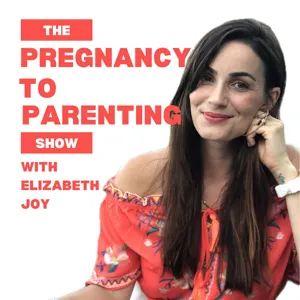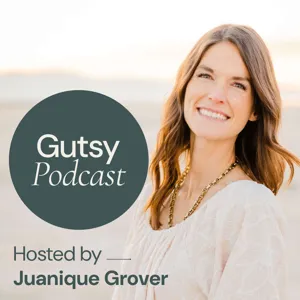Podcast Summary
Managing health care costs and preventing osteoporosis: Prioritize health care, manage costs with supplemental insurance, and prevent osteoporosis through early identification and lifestyle interventions. Mothers lose bone mass during pregnancy, so bone health starts at birth.
It's crucial to prioritize health care and manage out-of-pocket costs with supplemental insurance, just like UnitedHealthcare's Health Protector Guard plans. Meanwhile, osteoporosis, a condition that weakens bones and makes them more susceptible to fractures, can affect anyone at any age, not just the elderly. Early identification and prevention are key, and interventions can be made to improve bone stock and strength. Our bone health starts at birth, and mothers actually lose bone mass during pregnancy, which contributes to the baby's development. By increasing awareness and knowledge about bone health, we can all work towards preventing fractures and maintaining strong bones throughout our lives. And remember, small gestures like sending flowers from 1800flowers.com can bring smiles and brighten someone's day.
Bone loss during pregnancy and factors affecting bone health: Pregnancy causes a 5% bone loss, which can accumulate with multiple children. Nutrition, exercise, and avoiding negative influences like alcohol are essential for optimal bone health.
Our bodies are in a constant state of change, and this includes our bones. During pregnancy, a mother experiences a 5% bone loss, which can add up if she has multiple children. The body is always forming and breaking down bones, and this process is influenced by factors like nutrition, exercise, and certain medical conditions. Alcohol consumption can also negatively impact bone health, with 1-2 units per day considered safe, but 3 or more units having a significant negative effect. The exact mechanism of how alcohol weakens bones is not fully understood, but it is linked to various medical conditions that can weaken bones. Overall, maintaining a healthy lifestyle through proper nutrition, exercise, and avoiding negative influences is crucial for optimal bone health.
Pregnancy and Bone Health: Changes and Reversal: Proper nutrition and exercise can reverse bone loss during pregnancy. Vitamin D deficiency is common and can be detected with a DEXA scan. Building strong bones in childhood is crucial, and Vitamin D is essential. Regular tests ensure optimal bone health.
During pregnancy, bones undergo constant changes and are easily affected by various factors such as lack of optimal nutrition, immobility, and even space travel. This can lead to bone loss. However, the good news is that with proper nutrition and exercise, the bone loss can be reversed. Vitamin D deficiency is a common issue, especially in populations with limited sun exposure. A simple and noninvasive DEXA scan can determine bone status and strength. In childhood, building strong bones from the beginning is crucial. Vitamin D is essential for this, and many people, especially those in temperate climates, may not be getting enough due to lack of sun exposure or cultural practices. Vitamin D3 is the most commonly available and readily measured type for supplementation. Calcium can also be an issue for some people due to lactose intolerance or lack of other sources. Regular tests and assessments can help ensure optimal bone health.
Ensuring Vitamin D for Optimal Calcium Absorption: Regularly check calcium and vitamin D levels, ensure adequate intake of both for bone health, and consider fortified plant-based alternatives for dairy-free individuals.
While dairy products are a great source of calcium for bone health, it's essential to ensure adequate vitamin D intake as well. Calcium absorption depends on vitamin D, and deficiency in vitamin D can hinder bone health. Dairy is easily accessible, inexpensive, and a rich source of calcium, making it a popular choice. However, if someone is dairy-free, they must ensure their plant-based alternatives are fortified with calcium and vitamin D. It's crucial to get calcium and vitamin D levels checked regularly and maintain optimal intake for bone health and other bodily functions. Vitamin D is often overlooked, but it plays a vital role in calcium absorption and overall bone health.
Understanding Bone Density and Osteoporosis: Bone density accumulates in youth, decreases after mid-forties, especially in women during perimenopause. A DEXA scan measures bone density, osteoporosis has a T-score below -2.5, and osteopenia increases fracture risk. Exercise and nutrition help build and maintain bone density, while steroid use can decrease it but is reversible.
Our bones function like a metabolic bank, and we accumulate bone density during our youth. However, after mid-forties, especially in women during perimenopause, we start losing bone density at a significant rate. This loss can lead to osteoporosis, a condition characterized by weak bones and increased risk of fractures. A DEXA scan is a valuable tool to measure bone density, and a T-score below -2.5 is considered osteoporosis. Osteopenia, an intermediate stage between normal and abnormal bone density, increases the risk of fractures and should not be dismissed as harmless. Exercise and proper nutrition are essential to build and maintain bone density at any age. Steroid use can significantly decrease bone density, but the effects can be reversed with appropriate interventions. Remember, your bones are constantly changing, so it's never too late to start making positive changes to improve your bone health.
Muscle and bone influence each other's health: Engage in weight-bearing activities to boost muscle and bone health. Increase muscle mass for greater bone density and overall well-being.
Muscle and bone are closely connected, and they influence each other in several ways. Muscle strength increases lead to stronger bones, and the mechanical effect of stronger muscles puts more demand on the bones, triggering bone growth. Any weight-bearing activity, such as walking, running, or dancing, can help improve muscle and bone health. The focus should be on increasing muscle mass, which in turn boosts bone density. Simple activities like walking for 20 minutes a day are a good start, but adding muscle through weight training or other resistance exercises can yield more significant benefits, leading to increased energy and overall well-being. Empowering patients to focus on these actions can lead to noticeable improvements in both muscle and bone health.
Struggling with weight and bone health? Here's help: Seek telehealth for weight loss meds, improve nutrition, exercise, and address disordered eating for better bone health.
There are solutions for those struggling with weight loss and maintaining bone health. PlushCare, a telehealth provider, offers doctors available 24/7 to help prescribe FDA-approved weight loss medications and accept most insurance plans. For those concerned about their bone health, especially young women dealing with eating disorders or post-pregnancy, improving nutrition, exercise, and seeking professional help can make a positive impact. Anorexia and disordered eating directly affect bone health, and it's essential to address these issues with the help of psychologists and healthcare professionals. Bones are constantly changing, and it's never too late to strengthen them. After childbirth, focusing on consuming more calcium and vitamin D can support bone health. Overall, prioritizing self-care, good nutrition, and seeking professional help when needed can lead to improved bone health and overall well-being.
Essentials for Bone Health: Nutrition, Calcium, Vitamin D, Exercise: Proper nutrition, sufficient calcium and vitamin D intake, and regular exercise account for 80% of bone health prevention or management. Exercise and muscle strength improvement are crucial for bone health and overall well-being in later life.
Maintaining a healthy lifestyle with a focus on proper nutrition, sufficient calcium and vitamin D intake, and regular exercise is essential for bone health at any age. These foundational habits account for approximately 80% of what is needed to prevent or manage osteoporosis. While there are additional factors and potential interventions, addressing these basics is crucial. In later life, both men and women experience hormonal changes and muscle loss, contributing to osteoporosis. Many joint issues during this stage are linked to menopause symptoms rather than new arthritic conditions. Assessments are necessary to rule out secondary causes of osteoporosis and rheumatic conditions. Exercise and muscle strength improvement are vital for bone health and overall well-being.
Holistic Approach to Bone Health: Hormone Replacement Therapy (HRT) and Testosterone replacement can improve bone density, but a holistic approach is necessary for optimal bone health. Building muscle mass, addressing Vitamin D deficiency, and educating patients are essential components.
While medications have a role in managing bone health, they should not be the sole solution. A proportion of patients, particularly those going through perimenopause or menopause, require a holistic approach that addresses their specific needs. Hormone Replacement Therapy (HRT) can improve bone density, but it's not a one-size-fits-all solution due to safety concerns and potential impact on other functions. Testosterone also plays a role in bone health, and addressing low levels can be beneficial. Building muscle mass is another way to naturally increase testosterone levels. Vitamin D deficiency is common, and addressing it is crucial for bone health. Empowering patients with knowledge about their bodies and the various interventions available is essential. The body's biology is incredible, and with the right approach, bone health can be maintained and improved.
Being proactive about osteoporosis: Look out for risk factors: Identify risk factors like family history, medical conditions, or medication use for osteoporosis. Get assessed through clinical assessment or DEXA scan to prevent fractures and improve life expectancy.
Being proactive about your health, especially when it comes to osteoporosis, is crucial. Osteoporosis often doesn't have any symptoms, so it's essential to look out for risk factors such as family history, medical conditions, or medication use. If you have any of these risk factors, consider getting assessed, possibly through a clinical assessment or a DEXA scan. A single fracture can significantly impact your life expectancy, and the risk of future fractures increases if you've already had one. Our bones, which are hollow and light, are amazingly strong but have various functions. A fracture, whether in the spine or hip, can lead to various symptoms affecting multiple systems. Population studies show that having a fracture, especially in the spine, can decrease life expectancy. Hip fractures are also potentially fatal, with a significant number not surviving the first year. Therefore, it's essential to take osteoporosis seriously and take steps to prevent fractures and assess your risk.
Understanding Osteoporosis: Prevention and Consequences: Osteoporosis is a serious condition affecting people of all ages, causing preventable NHS bed days and suffering. Prevent it through diet, exercise, assessments, and don't ignore symptoms.
Osteoporosis is a serious condition with significant consequences, including preventable NHS bed days and suffering, and it can affect people of any age. It's crucial to be aware of risk factors and take proactive steps to improve bone health through diet, exercise, and assessments. The consequences of inaction can lead to multiple fractures and costly treatments. The NHS system could benefit from being more preventative and proactive in addressing osteoporosis. It's essential not to ignore symptoms and to seek help if needed. Bones are waiting to be strengthened, and it's never too late to start. For more resources, visit lazarwellbeing.com and sign up for the newsletter.
Flexible and budget-friendly health insurance plans from UnitedHealthcare: UnitedHealthcare provides Tri Term Medical Plans for long-term coverage and short term insurance plans for shorter durations, both underwritten by Golden Rule Insurance Company, offering access to a nationwide network and flexible options.
The future may bring unexpected changes, such as the use of chatbots, but certain necessities, like health insurance, will remain constant. UnitedHealthcare offers flexible and budget-friendly Tri Term Medical Plans, underwritten by Golden Rule Insurance Company, which last nearly 3 years in some states and provide access to a nationwide network of doctors and hospitals. For those in between jobs or missing open enrollment, UnitedHealthcare's short term insurance plans offer similar benefits for a shorter duration. Meanwhile, for Mother's Day shopping, Whole Foods Market offers unbeatable savings, from body care and candles to flowers and desserts, with Prime members enjoying discounts on these items.





